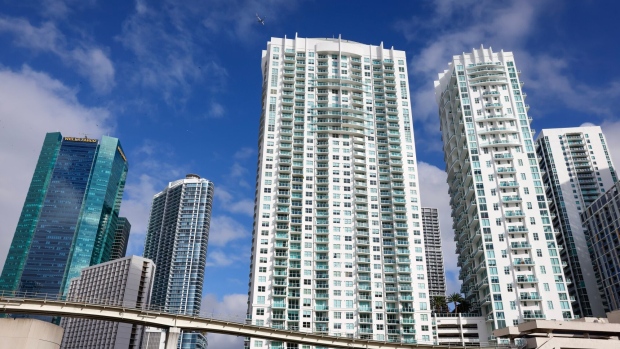Mar 18, 2024
Family Office Head Sees More Peruvian Clients Settling in Miami
, Bloomberg News

(Bloomberg) -- Bruno Ghio only works with Peruvian families at Allie, the wealth-management firm he founded five years ago.
But more and more, those clients are being serviced out of his Miami office as new generations settle in the US and the political volatility that drove billions of dollars abroad ensures that it stays there.
“We’ve grown a lot with the children of our clients in Miami,” Ghio, 55, said in an interview. “About 30% to 40% of our clients are now American citizens,” from closer to 20% in the past.
In Peru, a country of 34 million people with an economy of $240 billion, volatile politics and the pandemic upended decades of economic stability, triggering as much as $15 billion to leave the country, according to the central bank. As a result, wealthy Peruvians now invest most of their liquid assets outside the country, benefiting firms like Allie that provide investment, tax and succession advice.
Founded in 2019, Allie is among the top three independent multifamily offices in Peru, meaning they manage at least $2 billion, Ghio said, declining to give an exact figure. The firm, with offices in Lima and Miami, works with 23 families who have an average $50 million each.
Ghio, a former managing director at Banco de Credito del Peru with a stint as a senior private banker at JPMorgan Chase & Co. in New York, owns 100% of the firm, which currently has 10 employees. Most have worked together for more than a decade and two are based in Miami. Of the 10, eight are “front-office employees” including Ghio, and each works with three to four families.
To show how hands-on Ghio remains, he briefly excuses himself during the interview to close a trade for a client. The senior advisers handle all aspects of client services from paying marina fees to proposing private markets transactions, he said.
‘Big Families’
While the wealthiest families in Peru have their own single family offices and investment firms like Grupo Breca and Grupo Romero, Allie was founded with the idea of targeting large families and offering them more cost efficient ways to manage their finances and planning, he said.
“There was an opportunity to only work with big families, but have few of them,” Ghio said.
In its latest wealth report, Knight Frank said that Latin America was an outlier in 2023 with the number of ultra-high-net-worth individuals — or those with more than $30 million — shrinking by 3.6%. Globally, that number grew by 4.2% in the period. Miami, the report noted, is a city on the rise.
And while money floods into South Florida, there’s a dearth of new wealth creation in Peru and the rest of the region.
While mass consumption and retail have proven resilient, areas like agriculture and fisheries have been affected by climate change and are more volatile, according to Ghio. Peru hasn’t been a hotbed of regional tech startups either. Despite the lull, Allie isn’t thinking of expanding beyond its core of attending to Peruvian families.
While the main businesses for many families remain in Peru, new generations are setting up vehicles for real estate in the US and are involved with venture capital activities abroad, said Ghio, a Lima native who’s also the head of the CFA Society in Peru.
Ghio said he did a study recently that showed that Peru is transitioning on average from the second to third generation in wealthy families. In the US and other developed markets, they’re closer to the fifth generation, he said.
As more Peruvian clients become US citizens and marry locally, the complexities of dealing with taxes and other issues grow.
“A lot of second-generation family members went to study abroad and stayed there,” he said. “Now the transfer to the third generation with inheritance and estate taxes make it more complicated. That’s why having our office in Miami helps by having the lawyers, tax planners, real estate specialists and accountants next door.”
©2024 Bloomberg L.P.


